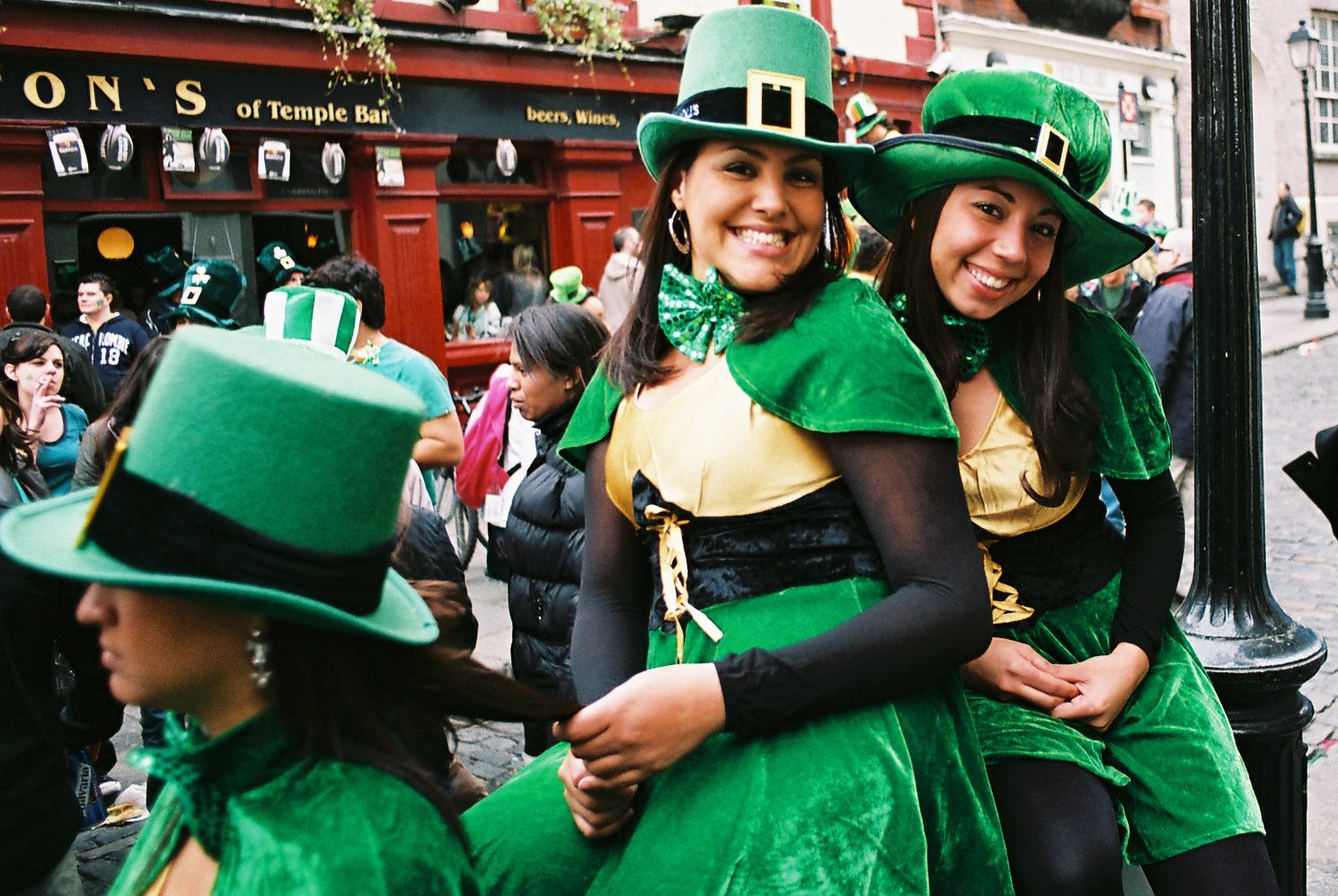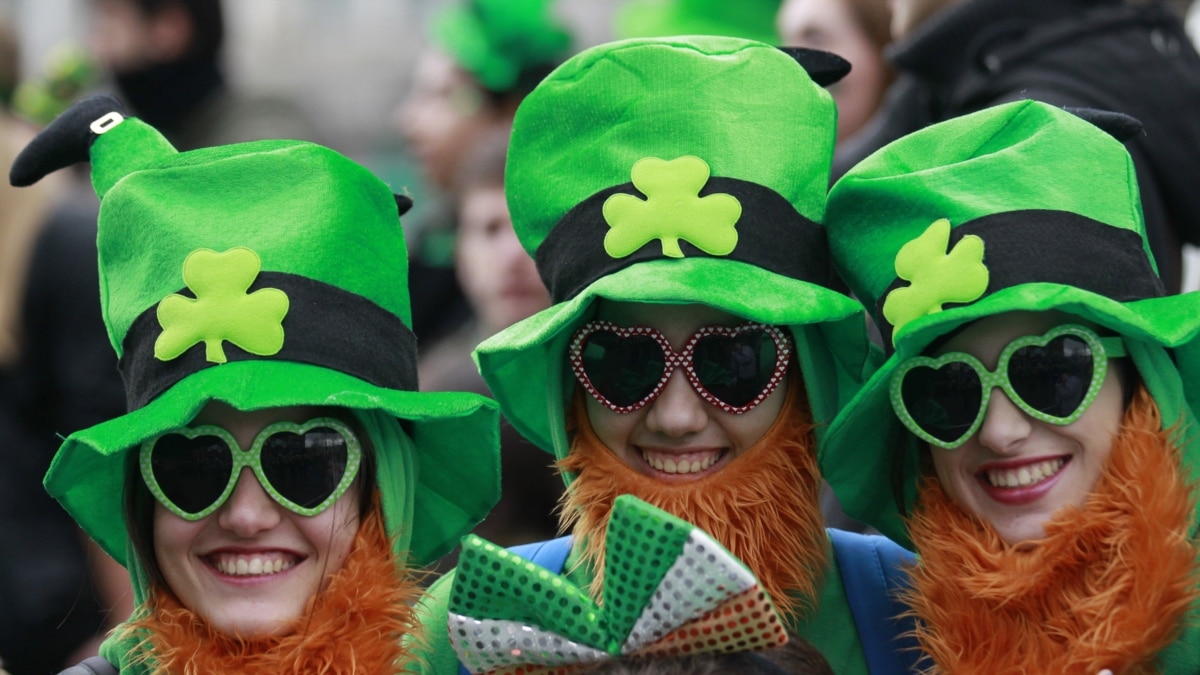Why March 17th For St. Patrick's Day? Unveiling The History!
Why do we celebrate St. Patrick's Day on March 17th? The date, March 17th, is inextricably linked to the life and legacy of Saint Patrick, the patron saint of Ireland, marking the day of his death and a pivotal moment in Irish history.
St. Patrick's Day, a global celebration of Irish culture, heritage, and revelry, falls annually on March 17th. This date is not merely a random selection; it's a day steeped in historical and religious significance, commemorating the death of Saint Patrick, the foremost patron saint of Ireland. The origins of this festival are rooted in religious observance, specifically the feast day honoring St. Patrick, and have evolved into a vibrant secular holiday embraced worldwide.
The holiday is celebrated on March 17th, no matter the day of the week, The reason it is celebrated on the 17th is because it is the day st. Patrick is believed to have died. March 17th marks the death of St. Patrick, the patron saint of Ireland. The Irish national holiday is celebrated on March 17 for a festival to pay tribute to the saint who evangelized Ireland. In celebration of Irish culture, people worldwide come together to mark st. Patricks day on march 17.
| Attribute | Details |
|---|---|
| Full Name | Saint Patrick |
| Born | Around 385 AD (estimated) in Roman Britain |
| Died | March 17, 461 AD (traditional date) in Ireland |
| Feast Day | March 17th |
| Known For | Patron Saint of Ireland, evangelizing Ireland, using the shamrock to explain the Holy Trinity. |
| Early Life | Kidnapped at the age of 16 and taken to Ireland as a slave. After escaping, he returned to Britain and became a priest. |
| Religious Role | Bishop, credited with converting much of Ireland to Christianity. |
| Legacy | Considered one of the most important figures in Irish history, his legacy continues to be celebrated through St. Patrick's Day. |
| Symbols | Shamrock, Celtic cross |
| Canonization | Saint in the Catholic Church, Eastern Orthodox Church, and some Protestant denominations |
| Authentic Reference | Encyclopaedia Britannica - Saint Patrick |
The date's significance stems from the belief that Saint Patrick, the man who is credited with bringing Christianity to Ireland, died on March 17th, around the year 461 AD. This date has been celebrated as a feast day since the ninth or tenth century in Ireland, marking a day of religious observance.
The evolution of St. Patrick's Day from a religious feast to a worldwide celebration is a fascinating journey. Initially, it was a solemn religious occasion, marked by church services and feasts. However, as Irish immigrants spread across the globe, particularly to places like the United States, the holiday began to take on a more secular character. Parades, festivals, and the wearing of green became hallmarks of the celebration, transforming St. Patrick's Day into a symbol of Irish culture and heritage, embracing a broader audience beyond its religious origins.
The shamrock, a three-leaf clover, is another crucial element of St. Patrick's Day. Legend has it that Saint Patrick used the shamrock to explain the Christian Holy Trinitythe Father, the Son, and the Holy Spiritto the Irish people. This association made the shamrock a powerful symbol of the day and Irish identity. It explains why shamrocks are so commonly seen during the celebrations.
The spread of Irish culture and traditions globally led to the widespread embrace of St. Patrick's Day. The holiday's popularity has grown exponentially over the centuries, transcending its religious roots to become a secular festival enjoyed by people of all backgrounds. Major cities around the world host grand parades, with festive clothing, music, and food becoming integral parts of the festivities. The global celebration of St. Patricks Day on March 17th is a testament to the enduring legacy of Saint Patrick and the vibrant spirit of Irish culture.
The Catholic Church played a key role in establishing March 17th as a recognized religious holiday. In the 17th century, St. Patrick's Day was formally recognized as a religious holiday, solidifying the date's importance. The declaration by Pope Urban VIII in 1631 further cemented this recognition, and St. Patrick's Day has been an important religious holiday for centuries.
The transition from a primarily religious holiday to a public holiday in Ireland also impacted its secular celebration. Over time, the day has evolved to reflect the blend of religious and secular traditions. This transformation reflects the broader cultural impact of the holiday and its continued significance to both Irish people and others around the world.
The specific date of March 17th therefore serves as a significant reminder of the man and his impact on the world. It provides an opportunity to reflect on the history, culture, and the enduring legacy of Irish heritage. The date's significance also brings into focus the broader narrative of cultural exchange and the power of religious and cultural symbols to transcend borders.
The fact that St. Patrick's Day is celebrated on the same date, no matter the day of the week, emphasizes the importance of the day. The date is preserved and it serves as a constant reminder of the traditions, culture, and religious significance attached to St. Patrick's Day. It is the date that defines and sets the occasion apart.
As the date of St. Patricks death, March 17th is also regarded as Saint Patricks heavenly birthday. This reference underscores the belief that the date represents not only the end of his earthly life but also the beginning of his eternal life, a sentiment central to the religious origins of the holiday. This aspect further cements the dates status as a day of both religious remembrance and cultural celebration.
The secularization of the day and the global celebration of St. Patrick's Day also lead to the promotion of different aspects, from cultural appreciation to expressions of solidarity and community. From the dazzling parades, to shamrocks and dancing, the event now has a new meaning. The holiday has evolved into a global phenomenon, yet it remains rooted in the date of March 17th, the anniversary of the death of Saint Patrick.
St. Patrick's Day is Monday, March 17, 2025. The date will continue to be a date that attracts people to join in the magic of Irish culture. It will continue to symbolize more than just a day of revelry; it is a celebration of heritage, faith, and the spirit of the Irish people.
For centuries, the day has been a tribute to the saint who evangelized Ireland, The Irish national holiday is celebrated on March 17. The day remains a unique date corresponding to the death of Saint Patrick. Therefore, the day will remain as a reminder of the man and his work.

Why is St Patricks Day Celebrated on March 17th? Scioto Post

St Patrick's Day 17th March Congregation of the Sisters of St.John

10 Interesting Facts About Ireland DEPICTAÈ